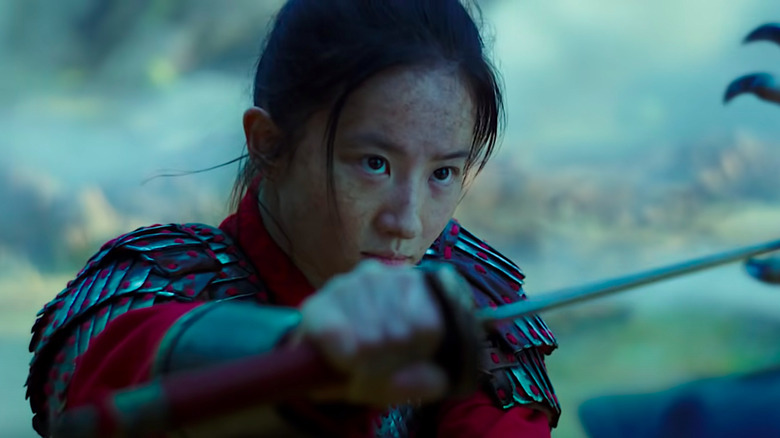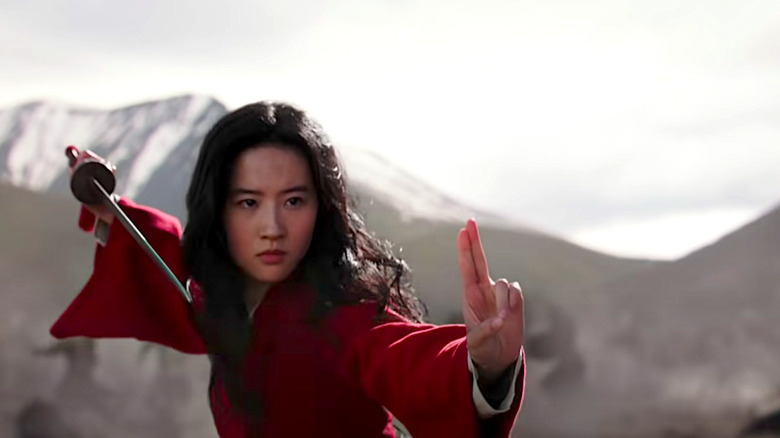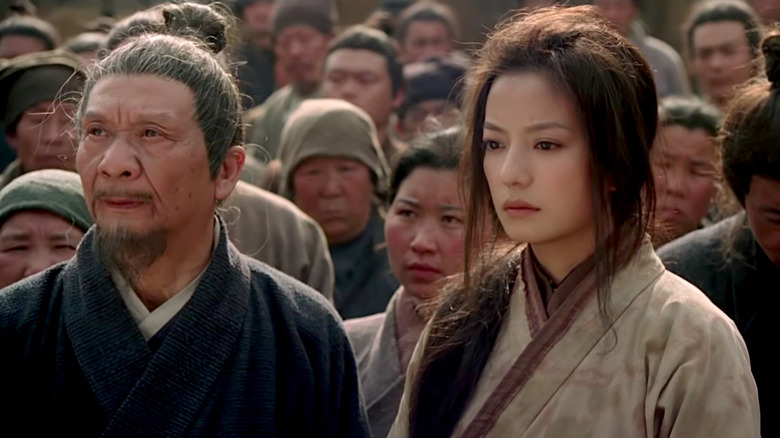The Real-Life Inspiration Behind Mulan
Disney's 1998 animated film "Mulan" gave us one of the most badass Disney women the company has ever created. The movie tells the story of Fa Mulan, a young woman who does not fit into the traditional mold of the other Chinese women in her village. Her family is constantly embarrassed by her nontraditional behavior, but they still hold out hope of her one day bestowing honor upon their family name. When news comes of the Huns attacking imperial China, every family is instructed to send one able-bodied soldier to fight in the army. Mulan's father, an ailing former soldier, is fully prepared to go into battle even though doing so will most certainly lead to his death. Not wanting to lose him to the war, Mulan secretly enlists in his place, saving his life. She disguises herself as a man, and quickly proves her strength and her worth as a soldier as she helps the Chinese army fight their way to victory. Oh yeah, and she also has a lucky cricket and a magical dragon with the voice of Eddie Murphy to help her out. If only we were all that fortunate.
Over the years, "Mulan" has become a beloved Disney classic. It has an awesome soundtrack filled with catchy hits, and Disney recently remade it into a live-action film that sought to bring a slightly more serious edge to the inspirational tale. As a character, Mulan is extremely impressive (when she climbs to the top of that pole and shoots down her arrow, my heart always swells), but what's even more impressive is that the character of Mulan is actually based on a real Chinese legend.
The story of Hua Mulan
Disney's Mulan originates from a 12th century Chinese folk tale about a young woman named Hua Mulan. Titled "The Ballad of Mulan," it tells the story of a young woman who disguises herself as a man and takes her father's place in battle. She fights amongst the Chinese army for twelve years, and when she returns to her village, everyone is shocked to discover that she disguised herself as a male soldier for all that time. This story is clearly different from Disney's version, which seeks to make Mulan into a hero who saves her people from the Huns. In reality, though, all that business of self-inflicted avalanches and elaborate firework festivals never really happened. Still, this doesn't make Hua Mulan any less of a hero.
Because "The Ballad of Mulan" is often thought of as a folk tale, many believe it's nothing more than a good story. But there are some who think Hua Mulan may have actually been a real person. There are historical documents that point to this possibility; however, many of these documents provide contradictory information. It seems no one can come to a consensus about who the real Mulan may have been. Mulan's ethnicity has also been called into question over the years, with some believing that she was actually from "a formerly nomadic group named the Tuoba." Whatever her true origin, she is truly an unforgettable example of female empowerment.
A different take on the same story
For anyone looking to experience a retelling of Mulan's story that is more accurate to the original source material, they can watch the film "Mulan: Rise of a Warrior," which came out in 2009. Directed by Jingle Ma, this version employs a nearly all-Chinese cast (something the 2020 remake sought to achieve, as well), and attempts to tell Hua Mulan's story with decidedly less fanfare than both of Disney's versions. In an article for The Telescope, Ma's film is described as "focus[ing] more on character development and the evolving relationships between Mulan and her allies and duties than action," a focus that both Disney's 1998 version and the 2020 live-action remake lacked.
Regardless of which version you choose to watch, though, Hua Mulan's story has inspired (and continues to inspire) people with its themes of honor and selflessness. She is a woman "with all the force of a great typhoon," and I sincerely hope her story continues to be told.


